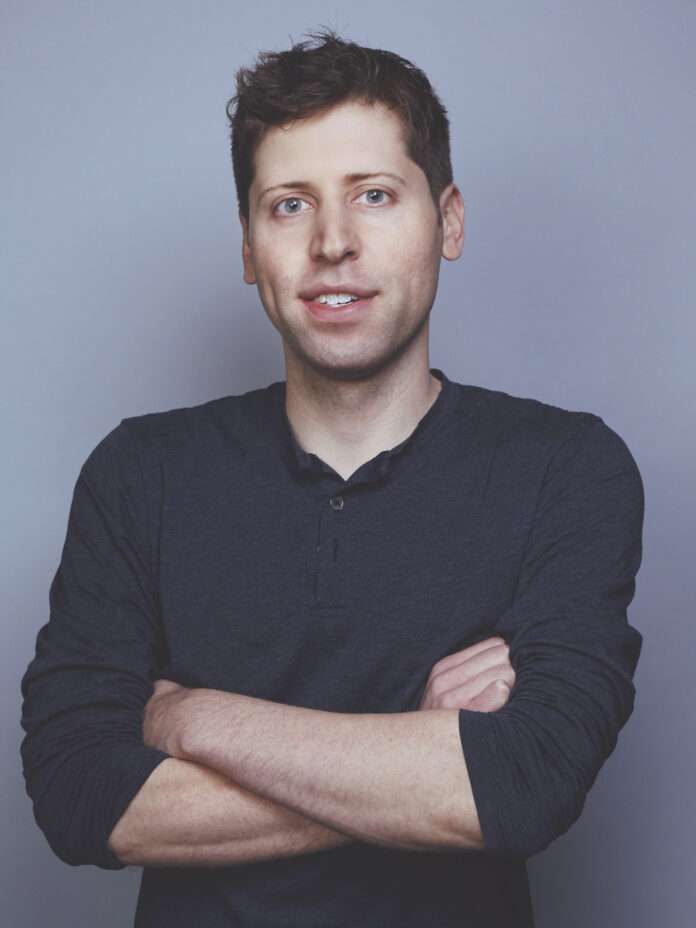Sam Altman, CEO of OpenAI, the company behind ChatGPT, is eyeing another fast-moving trend: psychedelics.
Artificial intelligence, particularly OpenAI’s ChatGPT, is quickly changing the world. And according to Sam Altman, chief executive of OpenAI, which operates the popular predictive language tool, the other big category to watch is much, much older: psychedelics.
Altman also serves as chairman of the board at Journey Colab, a company working to advance clinical trials for psychedelic drugs like MDMA, mescaline, and psilocybin, with the goal of making them available to sufferers of mental health issues, and drug use disorders, among other conditions. The company raised $12 million in 2021.
According to Altman, the business of psychedelics is still very much a work in progress — much like that of AI. He told the Washington Post he’s not sure how the psychedelic category is “going to make economic sense,” nor has it figured out “how we’re going to guarantee that this will be a good and safe experience for people.”
That’s where Journey comes in, he says.
“My hope is that Journey, with this new approach, will figure out something that actually works.”
The startup recently announced a partnership with the luxury rehab clinic All Points North to bring drugs like MDMA and psilocybin to late-stage trials.

“Surgery is done in a safe environment in specialized facilities by highly experienced teams,” Jeeshan Chowdhury, Journey’s CEO, told the Post. He says psychedelics are powerful tools that need to be administered in safe environments. “We aim to demonstrate that rehab centers … are the safest place for these interventions.”
Journey Colab wants to make psychedelic therapy available to marginalized communities, allocating ten percent of its founding equity to a trust for Indigenous groups in the U.S.
Psychedelic drugs have been a buzz in Silicon Valley for years with venture capitalists investing millions of dollars in companies developing psychedelic drugs or related services since the FDA approved a variation of ketamine to treat depression in 2019.
The global psychedelic drugs market was worth $4.2 billion in 2022 and is expected to grow at a CAGR of 14.5 percent to $8.31 billion by 2027. Leading pharmaceutical companies such as Johnson & Johnson, Pfizer, Roche Holding AG, and Merck have all invested in psychedelic research and drug development.
And as the industry moves toward regulatory approval, particularly in the U.S., Canada, and Europe, psychedelic-assisted therapy is gaining popularity. The industry has witnessed growth with the emergence of new and better techniques for legal ketamine administration and the recent legalization of psilocybin-assisted therapy in Oregon.
The increasing demand for psychedelic-assisted therapy is driving the emergence of new courses for therapists and medical professionals in this field. Numinus Wellness, a global leader in developing and delivering innovative mental health solutions, recently launched a new Certification Pathway program to help participants develop core psychedelic-assisted therapy (PAT) skills.

Canada’s ATMA also announced its first training program focused on psilocybin and MDMA for physicians, psychiatrists, and prescribers. It’s currently the only training provider to have conducted legal psilocybin-assisted therapy for palliative care patients and led clinical trials with healthcare professionals over the past two years. ATMA is also working on conducting MDMA clinical trials to increase the scope of psychedelic understanding.
Like Altman, Vu Tran Co-founder of ATMA says the industry needs structure.
“There are so few trained psychedelic therapists as is, and there are even fewer trained prescribers,” Tran said. “We already see in Australia and Alberta, and even looking ahead to the rest of Canada and most U.S. states, the approach to psychedelic therapy is likely going to involve prescribers as the gatekeepers for psychedelic-assisted therapy.”
In a recent interview, Altman was speaking about OpenAI’s focus, but it also could have been a comment about the nascent psychedelic industry too. “A big part of our goal at OpenAI is to get the world to engage with us and think about [this technology], and gradually update and build new institutions, or adapt our existing institutions to be able to figure out what the future we all want is,” he said. “So that’s kind of why we’re here.”
Related on Ethos:


